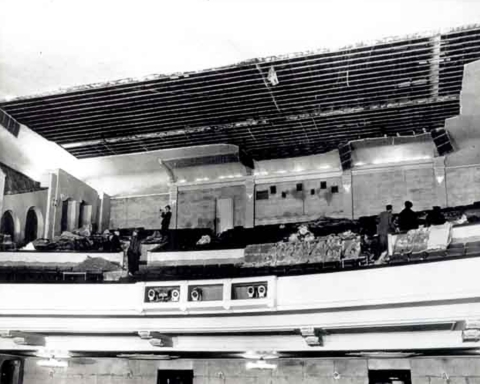There was good news and some not-so-good news from the Peninsula Democratic Party this past weekend.
The good news is the massive turnouts at two caucuses to elect regional representatives to the California Democratic Party. The caucuses are held in each of the state’s Assembly districts and turnout Saturday in the 22nd (represented by Kevin Mullin) and in the 24th (represented by Marc Berman) was huge with well over 600 attendees at each event.
This is a dramatic improvement over prior caucuses, where turnout was a couple of dozen or so.
Clearly, Peninsula Democrats are energized by the success of the 2018 congressional races, by the policies and conduct of the current president and by the prospect of winning the White House and the U.S. Senate in 2020.
The not-so-good news is that the party is split between self-described progressives and “establishment” Democrats, reflecting a national divide that could undermine the Democrats’ chances of winning in 2020. And, because this is the Democratic Party, there is even a split among the progressives, although it can get a little confusing because every Democrat running for these delegate slots seemed to self-describe as a progressive.
And speaking of self-description, the party doesn’t divide delegates into male and female candidates. They divide themselves “self-identified female” and “other than self-identified female.” Sometimes a thing just speaks for itself.
In the 22nd District caucus, a slate of Peninsula Progressives essentially took the lunch money of a slate backed by Mullin and state Senator Jerry Hill. The Progressive slate won 9-5 over the Mullin/Hill slate, despite the very high-profile presence of both legislators at the caucus.
Some of this is a function of fundamental politics – the Progressive slate, said to have been organized by political activist and county Harbor Commissioner Sabrina Brennan, worked harder to get more of their voters to the caucus.
Still, it’s a slap at the influence of two well-established Peninsula politicians. The Mullin/Hill slate was heavily populated by other elected officials and three of the five lost – Burlingame Councilwoman Emily Beach, Belmont Councilman Charles Stone and San Bruno Mayor Rico Medina.
In the 24th, the fight was between two Progressive slates and while they each won their share, it does not bode well for Democratic unity that the left wing of the party is competing with itself.
ANY NUMBER OF ANGRY PEOPLE: If there is a message in the defeat of an establishment slate, it might be further reflected in a 12-8 vote Friday by San Mateo County Cities Selection Committee to put Millbrae Councilwoman Gina Papan on the Metropolitan Transportation Commission and oust Redwood City Councilwoman Alicia Aguirre.
One of the factors driving Papan’s victory was concern – more like anger and distrust — that the region is moving swiftly to establish housing construction quotas that are aimed, quite particularly, at San Mateo County. Papan positioned herself as someone who would be appropriately aggressive in fighting that effort, and her selection is another example of an insurgent victory over the local status quo.
AN OPEN FIELD: The 24th Assembly District caucus was a nice win for former Assemblywoman Sally Lieber, who is running for Hill’s Senate seat. She was the top vote-getter among the “self-identified female” candidates, showing she still can carry the day among Santa Clara County progressives.
Lieber was a Mountain View councilwoman before winning an Assembly seat in 2002. She ran against Hill for the open Senate seat in 2012, and he won by a 2-1 margin. But Lieber outpolled Hill by 8 points in the Santa Clara County portion of the district.
The Senate candidates will report their 2018 fundraising totals at the end of the week, and it is expected that public interest entrepreneur Josh Becker will report a total in excess of $300,000, well ahead of his three opponents – Lieber, Redwood City Councilwoman Shelly Masur and Burlingame Councilman Michael Brownrigg.
You can expect they will say it is too early to assume anyone has taken command of the race, and that is the problem for the four candidates.
Rumors are quite active that another candidate could get into the race and change everything. The names that are being offered – not by these individuals, but by those who want them to run – are Mullin, who represents half the Senate district, former Assemblyman Rich Gordon, now president and CEO of the California Forestry Association (and, by all accounts, quite happy to be out of Sacramento), and San Mateo Mayor Diane Papan.
Contact Mark Simon at mark.simon24@yahoo.com.





